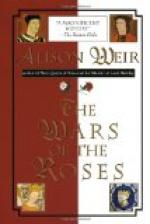Paul had gone forth alone that day, and had not been present when the queen had ridden herself to the fortified gates to demand an entrance, which had been firmly and respectfully declined her. But he had learned tidings which disquieted him not a little, and it was at full gallop that he dashed back into the ranks, and sought the prince himself, who was looking with darkening brow upon the frowning battlements of the unfriendly city.
“My liege, it brooks not this delay,” he cried, reining up beside Edward, and speaking in rapid whispers. “The army of York is scarce a score of miles away, and in hot pursuit after us. They have had certain news of our movements, and unless we can push on across the river and meet our friends there, we shall be taken in the rear, and at sore disadvantage. It behoves us to strain every nerve to reach our friends before our foes are upon us.”
“I doubt not that,” answered Edward calmly, yet with a look which Paul did not understand; “but the wide river runs before us, and the bridge is barred to us. Unless we reduce first this noble city, we must turn and face the foe and fight him at sore odds.”
A look of dismay crossed Paul’s face as he heard this piece of news, and he silently followed the prince at his bidding to the spot where the leading nobles and generals were gathered together in warm debate. The news that Edward was just upon them ran like wildfire through the ranks, and all the most experienced leaders, including the royal Margaret herself, were of opinion that it would be better not to run the risk of a battle, but retire rapidly and stealthily from their present position, and not encounter the onset of Edward’s veteran troops, flushed with victory and thirsting for blood, until their hardy mountain allies had contrived to join them.
But there is something revolting to young and ardent spirits in the thought of flight, and the Duke of Somerset was eager for the fray. He argued that an easy victory must be theirs if they did but act boldly and hastened to the attack. To fly were fatal; their troops would become disheartened and melt away. Their foes would openly triumph, and all men would be drawn to them. Edward’s soldiers, weary with long marching, would be taken by surprise. It were a thousand times better to risk the fight than to play the coward at so critical a juncture.
And these impetuous words carried the younger spirits along with them. The prince drew his sword, and riding through the ranks, asked if the soldiers would choose to fight or fly. There could scarce be more than one reply to such an appeal so made. They drew their swords and vowed to live or die with him, and the enthusiasm of the moment was such that all were carried away; and orders were instantly given for a march upon Tewkesbury, where it was thought a spot might be found which would give them advantages for the coming struggle.
The troops had had a long march earlier in the day, but they traversed the ten miles which lay between them and Tewkesbury with cheerful alacrity. Paul and the prince rode side by side in the van of the advancing host, and Edward looked straight before him with glowing eyes, as if he felt that a crisis of his fate were at hand.




